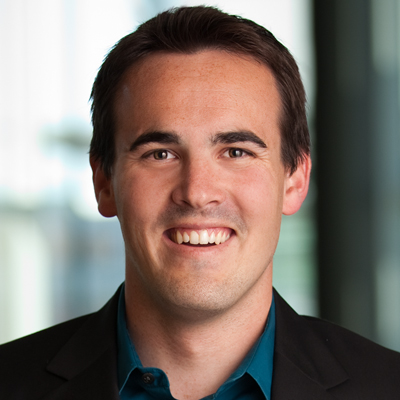Using sensors to track global health outcomes
Nearly a billion people in the world lack access to safe drinking water, two billion have inadequate sanitation facilities, three billion use biomass for their daily energy needs, and nearly half the world’s population live in rural isolation, lacking access to the most basic human services. Combined, these limitations are a leading cause of the perpetuating cycle of poverty and political insecurity. Meanwhile, the majority of international development agencies are responsible for self-reporting project outcomes. At best, expert spot-checks are conducted in the field occasionally. These results tend to show individual project success, while meta-surveys indicate on-going challenges in the sector. Dr. Evan Thomas, of Portland State University, addresses this disconnect through cellular enabled electronic data monitoring technologies that provide objective data on system performance, which can be used to demonstrate success and identify project weaknesses. By demonstrating which technologies and programs are truly successful, Dr. Thomas can target opportunities for scaling, through savings realized by eliminating unsuccessful approaches. Thus, Dr. Thomas’ research will benefit developing communities by providing proven and accountable programs.
Dr. Thomas’ Sustainable Water, Energy, and Environmental Technologies Laboratory, or the SWEETLab, is working with partners to demonstrate this concept across several applications and countries. His technology can provide objective, quantitative, and continuous operational data on the usage and performance of programs across a range of sectors and communities. The data is then directly integrated into SWEETData, an Internet database presenting summary statistics on performance and usage of the monitored technologies to front-end users. Dr. Thomas has thus far demonstrated this technology in thousands of households across 15 countries in water, sanitation, household energy, and rural infrastructure programs with diverse partners including USAID, DFID, Mercy Corps, the Lemelson Foundation, Gates Foundation partners, and DelAgua Health. The effectiveness of such technologies demonstrates the power of Dr. Thomas’ remote monitoring systems which are helping to ensure the quality and accountability of international projects.
Current research includes:
-
Providing Clean Water: Dr. Thomas is the COO and principal investigator for DelAgua which is currently distributing improved cooking stoves and water filters to 2.5 million people in rural Rwanda. This program is financed using Dr. Thomas’ concept of carbon credits for water treatment.
-
Global Health: Dr. Thomas implemented a new model for global development that has led to sustained effectiveness. Through the implementation of new technologies, Dr. Thomas is able to earn carbon credits which in turn fund future technologies and implementation. Therefore, his team is not reliant on a linear charity based model but rather an effective model that has had marked success for the last ten years.
-
The Internet of Broken Things: Despite the many technologies that have been developed to improve global health, a tracking method for the technologies has been lacking. Dr. Thomas provides sensors as a tool to improve accountability for information exchange in addition to assessing if global communities are actually using implemented technologies. Using the wide-use of cell phones in developing countries, the sensors provide feedback that will be important for future developments and implementation.
Bio
Evan A Thomas, Ph.D., P.E., M.P.H. is an Assistant Professor and Director of the Sweet (Sustainable Water, Energy and Environmental Technologies) Laboratory, and a Faculty Fellow in the Institute for Sustainable Solutions at Portland State University. Evan works at the interface of engineering, environmental health and social business, with professional experience working in government, industry, non-profits and academia. Evan holds a Ph.D. in Aerospace Engineering Sciences from the University of Colorado at Boulder, is a registered Professional Engineer (P.E.) in Environmental Engineering in the State of Texas, and holds a Masters in Public Health from the Oregon Health and Science University.
Prior to joining PSU, Evan worked as a civil servant at the NASA-Johnson Space Center in Houston, Texas for six years. At NASA, Evan was a principal investigator and project manager in the Life Support and Habitability Systems Branch working on concepts for sustainable Moon and Mars spacecraft. These included microgravity fluid management technologies and water recovery systems spanning the range of technology readiness from research and concept development through operational spacecraft hardware flying on the Space Shuttle and International Space Station.
Aside from research, in his free time, Dr. Thomas enjoys the company of his wife while trying to balance the professional roles of three separate jobs. He also enjoys snow skiing on the year long slopes of Mt. Hood.
Website: www.sweetlab.org


